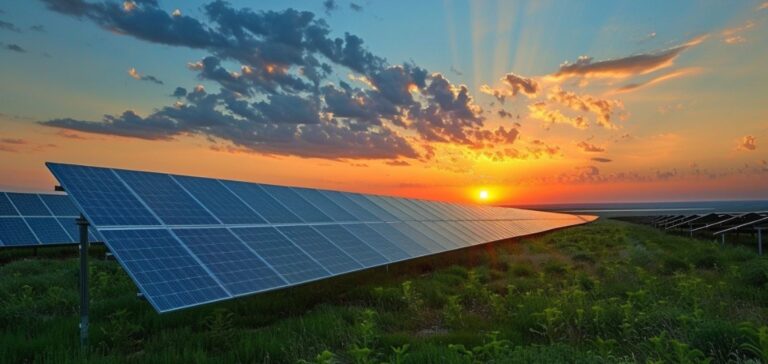The European Southern Observatory (ESO) has expressed serious concerns about the power plant project near its telescopes in the Atacama Desert in northern Chile. During a press conference in Santiago, the ESO warned that the proposed facility could disrupt sky observation, in one of the world’s clearest and most star-filled regions. The light pollution generated by this plant, according to the organisation, would have a “devastating” effect on the quality of astronomical observations.
Itziar de Gregorio, an astronomer and ESO representative in Chile, stated that “the impact will be devastating, irreversible, and cannot be mitigated if the project remains in its planned location.” The project, led by Aes Andes, a subsidiary of Aes Corporation, represents a $10 billion investment in a low-carbon energy plant. It is part of Chile’s ambitious programme to replace fossil fuels by 2050. This project, which includes hydrogen and green ammonia production, as well as solar and wind energy, still requires approval from Chilean environmental authorities.
The project’s proximity to astronomical observatories has sparked debate. Aes Andes estimates that the plant will be about 20 to 30 kilometres from the Paranal and Armazones observatories, but the ESO claims the distance does not exceed 11 km for Paranal and 20 km for Armazones. These two sites host some of the world’s most advanced astronomical instruments, including Paranal’s telescope and the large optical instrument under construction in Armazones.
In January, the ESO had already warned of the project’s potential effects on astronomical observation. Following a detailed analysis, the organisation confirmed that the impact would be irreversible, with “blinding light pollution.” Currently, light pollution around the two observatories is below 0.2%, making them ideal sites for astronomy. However, the ESO projects that the plant would increase light pollution to at least 1.49% at Paranal and 2.45% at Armazones, levels deemed incompatible with high-quality observations.
Aes Andes, for its part, assures that the project meets the highest lighting standards and complies with Chilean government regulations. However, the ESO emphasises that this increase in light pollution would compromise telescope efficiency and hinder astronomical research.
A project with multiple challenges
The power plant planned by Aes Andes is expected to contribute to Chile’s energy transition by meeting the growing demand for low-carbon energy. The country, which aims to reduce its dependence on fossil fuels by 2050, sees this project as an opportunity to promote renewable energy sources, including hydrogen and green ammonia, as well as solar and wind power. However, this energy transition must be balanced with preserving ideal conditions for astronomy.
Protecting the Atacama Desert sky
The Atacama Desert is renowned for its exceptionally clear skies, allowing for some of the best astronomical observations in the world. The ESO, with its two major observatories, plays a key role in global astronomical research. Thus, preserving this unique environment is crucial for the future of astronomy. The debate between Aes Andes and the ESO highlights a dilemma between economic development and the preservation of strategic natural sites.






















